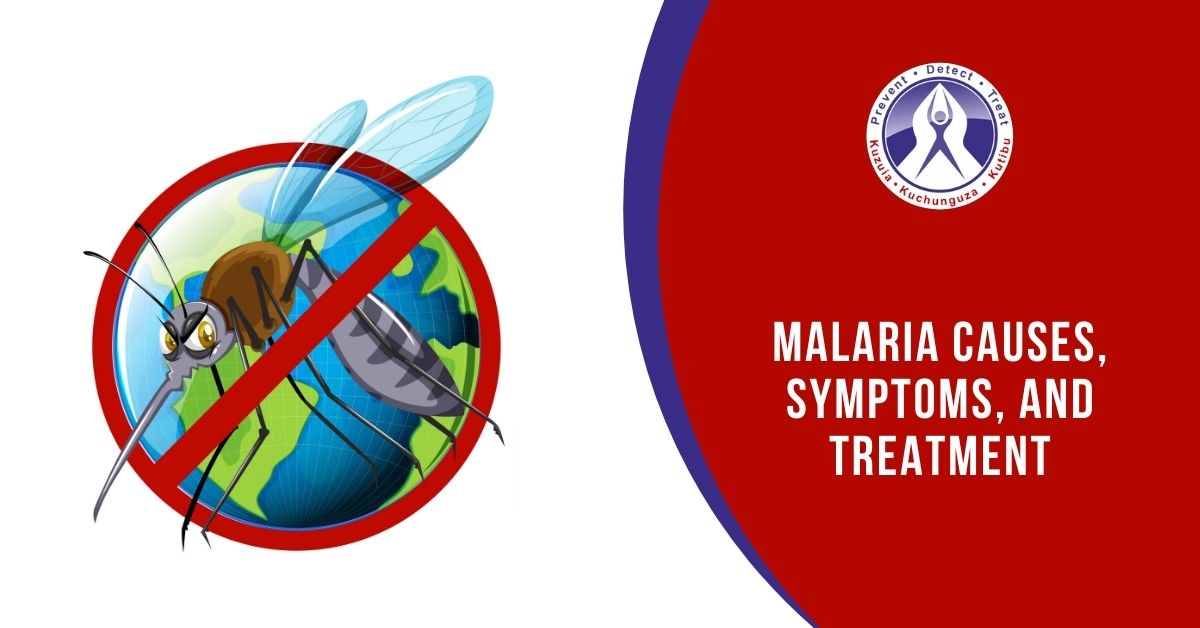Malaria Causes, Symptoms, and Treatment
6,213 viewsMalaria is a mosquito-borne disease that can be life-threatening if you don’t treat it in time. It is caused by a family of parasites who attack the red blood cells in a human body and lead to symptoms like fever, chills, and diarrhea. Although the disease a lot more common in Africa than in other regions, it’s important for everyone to be aware of malaria causes, symptoms, and treatment.
What Causes Malaria
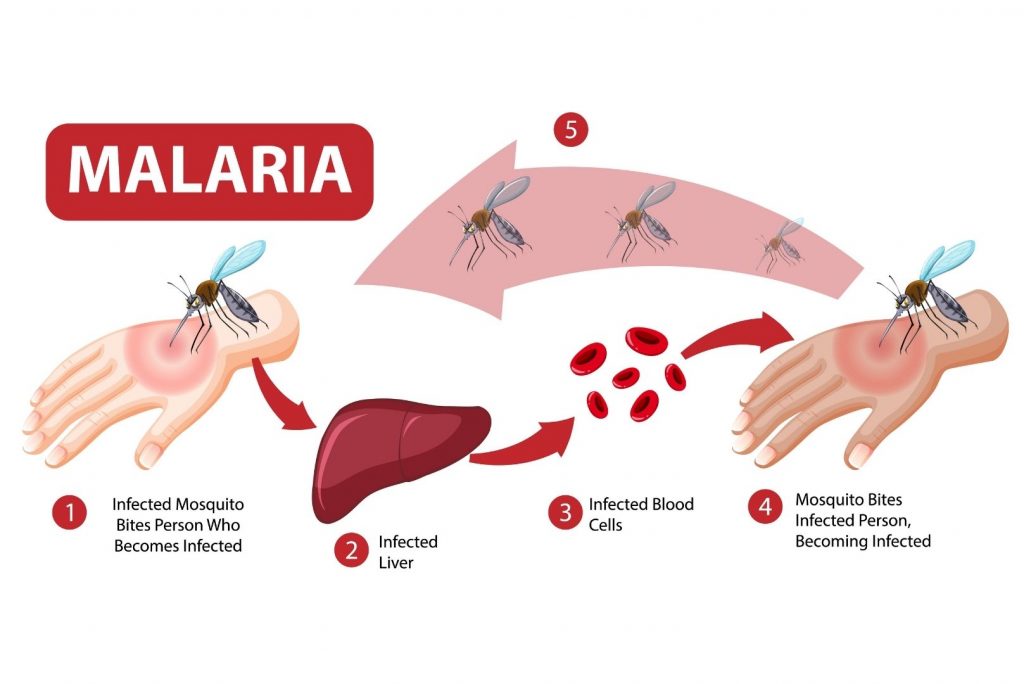
Although it’s mosquitoes that transmit malaria from one person to the other, the disease is actually caused by a parasite called Plasmodium. Plasmodium is a class of similar parasites. Out of the entire category, four types of Plasmodium parasites specifically cause malaria. They are:
- Plasmodium vivax
- Ovale Plasmodium
- Plasmodium malariae
- Falciparum Plasmodium
How malaria enters and attacks the human body
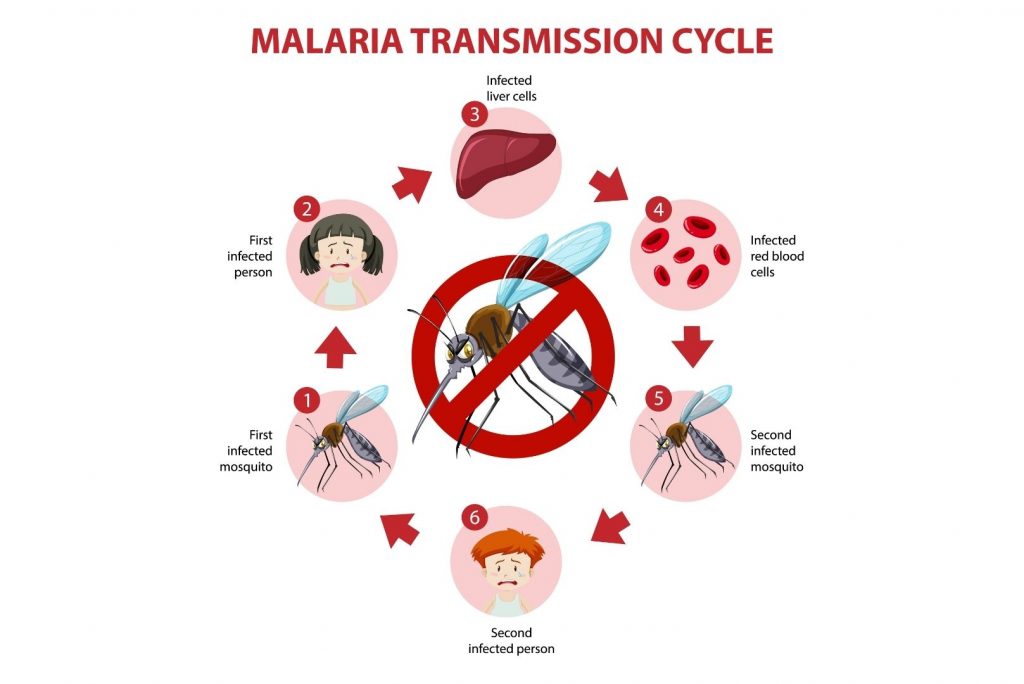
The malaria transmission cycle begins when a mosquito feeds on or bites a person who is infected with malaria. When this mosquito bites you, the malaria parasite enters your body.
The parasite then travels to your liver where they lie dormant until they mature. Some kinds of parasites can lie dormant for up to one year.
After the parasite matures, it enters your bloodstream and starts attacking your red blood cells. This is when you actually begin to experience some or all of malaria symptoms.
Now that you know about malaria causes, let’s talk about the symptoms of malaria so you can know when you should seek medical attention.
Malaria Signs and Symptoms
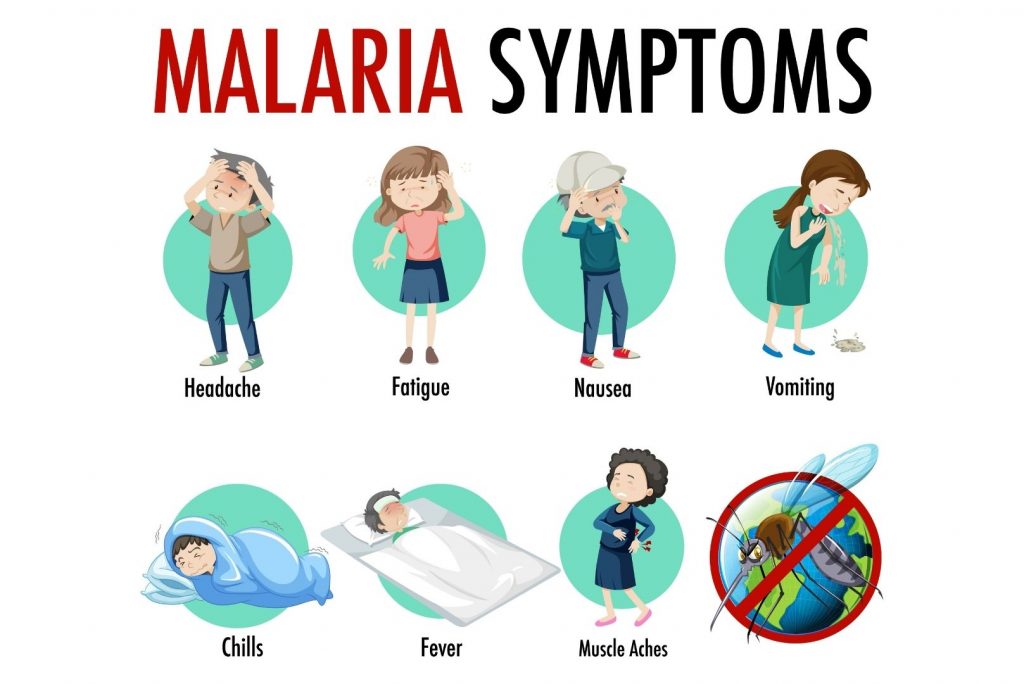
Symptoms of malaria take significant time before they occur. Most people experience these symptoms after a few weeks have passed since the mosquito bit them. However, malaria parasites can lie dormant in the body for a much longer period too.
Following are common Malaria symptoms:
- Feeling of discomfort
- Recurring fever
- Chills
- Headache
- Pain in the abdomen
- Nausea and/or vomiting
- Diarrhea
- Pain in joints or muscles
- Fatigue
- Irregular breathing
- Faster heart rate
- Cough
Some malaria patients can also have cycles of malaria attacks. A malaria attack usually begins with mild shivering which leads to chills. After a few moments, the body temperature drastically increases and the patient may start sweating. Eventually, when they return to the normal state, the attack can be considered to be over.
How is Malaria Diagnosed
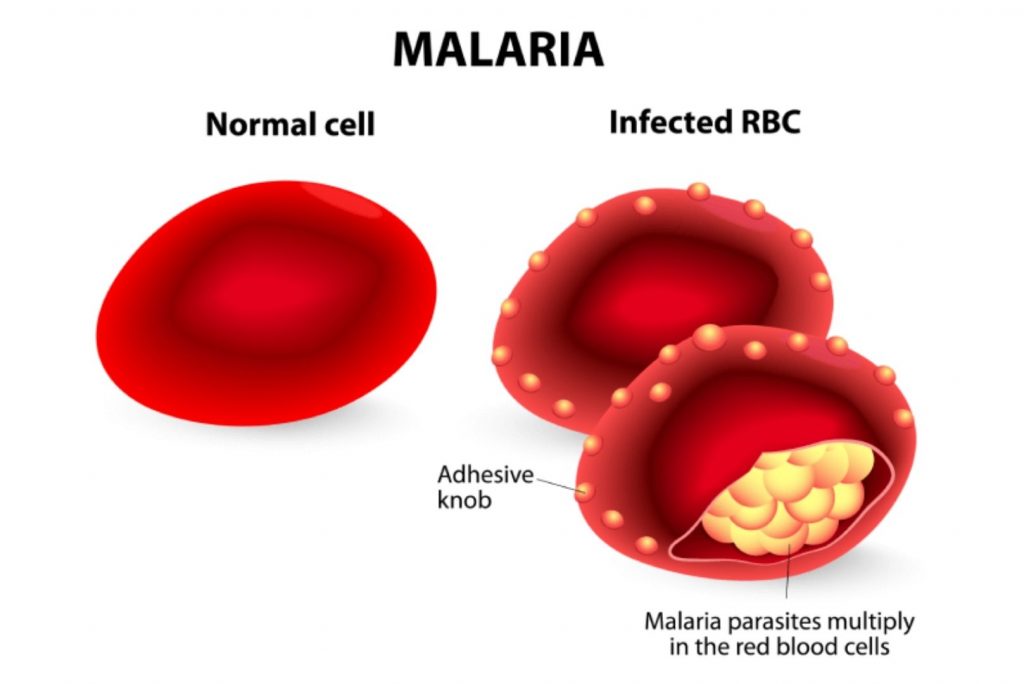
Just knowing about malaria causes and symptoms is not enough. You should also know how malaria is diagnosed so you can get on with the right treatment. To diagnose malaria, your doctor will ask you to do blood tests. Different blood tests are useful to understand the following aspects:
- To confirm whether malaria parasite has entered your body
- If yes, which type of parasite has caused your symptoms
- How severe the disease currently is and how severely it is likely to progress
Some of these tests can produce results in a few days while others can do so in one day. Depending on your initial test results, your doctor can ask you to undergo additional medical examinations.
Treatment Options For Malaria
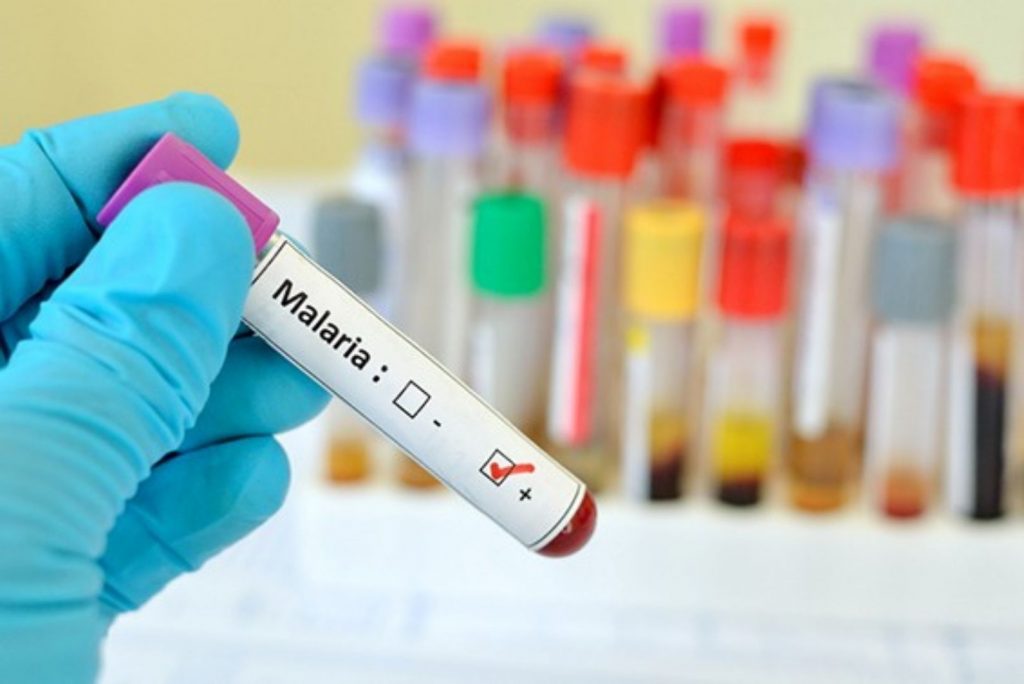
Because it’s the parasite that attacks a person’s body, the best malaria treatment is just to kill those parasites inside the body. Which medicines or treatment options are suitable for a person depends on factors like:
- The type of parasite found inside the body
- How severely the parasite is attacking the body
- The age of the patient
- Any comorbidity conditions
- Whether the patient is pregnant or is breastfeeding
Some of the common medications used for the treatment of malaria are:
- Chloroquine phosphate
- Artemisinin-based combination therapies (ACTs)
- Atovaquone-proguanil (Malarone)
- Quinine sulfate with doxycycline
- Primaquine phosphate
However, please note that you must consult a doctor to decide the best malaria treatment course for you. Self-diagnosing or self-treatment of malaria is harmful and can lead to serious consequences.
Best Malaria Treatment in Dar es Salaam, Tanzania
So that’s all you need to know about malaria causes, symptoms, and treatment.
Regency Medical Centre is one of the most trusted hospitals in Tanzania. If you feel any symptoms of malaria, please contact our team of doctors on an immediate basis. We provide the best possible treatment for malaria in Dar es Salaam, Tanzania.
Regency Medical Centre is equipped with state-of-the-art diagnostic facilities that will help the doctors diagnose your symptoms easily. Our team strives to help the people of Tanzania in the best possible way. So, regardless of whether your disease is serious or mild, we will guide you on the best course of treatment along with how to take care of yourself while you are on the path of recovery.
To speak to our medical team, book an appointment here.

